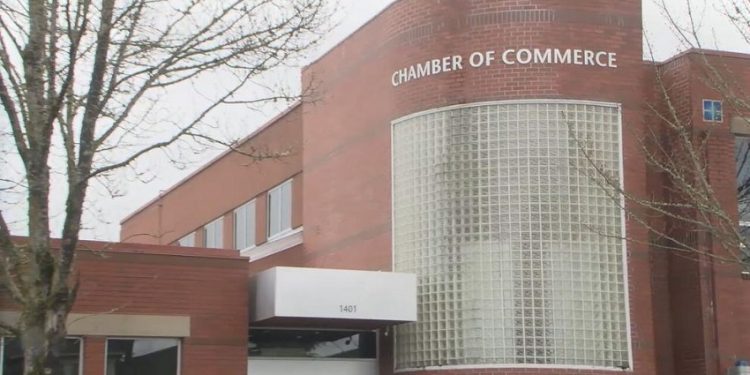Eugene, OR – The Eugene Area Chamber of Commerce is taking legal action against the City of Eugene over its recently approved fire service fee, arguing that the decision should be left to the voters. The fee, designed to address the city’s estimated $11 million deficit, was approved by city leaders, but the Chamber believes residents should have a say in the matter.
Brittany Quick-Warner, the President and CEO of the Eugene Area Chamber of Commerce, stated that the organization’s members voiced strong opposition to the fee following its approval. A recent survey conducted by the Chamber revealed that 70% of respondents opposed the fee, which they argue functions similarly to a tax. Warner emphasized that under Oregon’s property tax system, such fees are typically subject to a public vote.
“We just believe the voters should have a chance to weigh in on this new fee that will be enacted permanently,” Warner said. “Oregon has a property tax system that requires voters to be able to vote on taxes that are coming around. This is a fee, so it gets around that system, and we just believe the voter should have a chance to have a say in this.”
The Chamber has initiated a referendum to place the fire service fee on the ballot, which could give Eugene residents the opportunity to decide whether it remains in place. According to Warner, the vote would likely take place during the August election, but the city council still has the option to revise, scale back, or cancel the fee before then.
In order for the referendum to proceed, the Chamber must gather 5,817 signatures from Eugene residents by March 13, 2025. Warner acknowledged the time-sensitive nature of the effort, stating, “We know that we have to collect 5,817 signatures by March 13. We initiated that referendum on the 21st of February, so at this point we have just shy of 17 days to collect signatures.”
If successful, the referendum would allow the people of Eugene to decide whether the fire service fee stays or if the city will need to find an alternative solution to address the budget shortfall.














